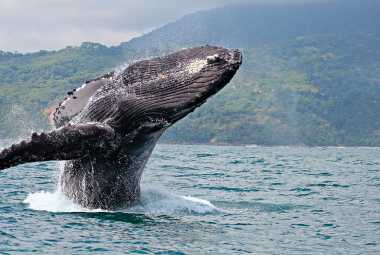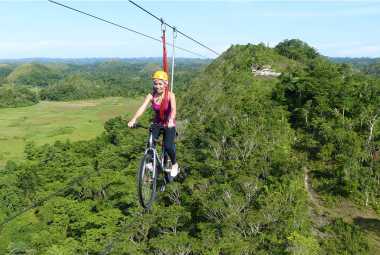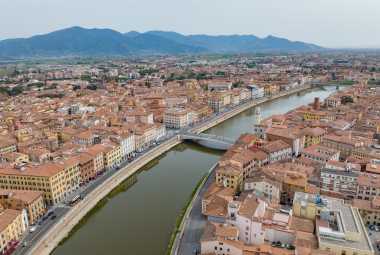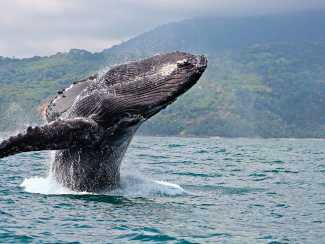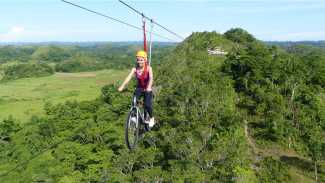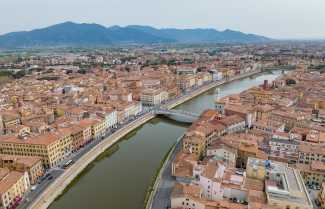Image by ticolingo.com
*Vacation Mode is a for-profit site. It contains paid banner advertisements that are generated and managed by a third-party network. This site also includes relevant affiliate links (both in the content and on the sidebar) all of which we do our best to clearly mark as such.
Table of Contents
Overview of Safety in Costa Rica
Costa Rica is known for its beautiful landscapes and eco-tourism, offering a stable and welcoming environment. However, like any destination, it's important to understand the risks, especially for those inexperienced in traveling in Latin America. Learn more about Costa Rica's safety record.
Safety Facts
In the 2023 Global Peace Index, Costa Rica ranks highly in overall peace, though it's essential to be aware of increasing crime rates including theft and robbery. Understanding these risks helps in taking appropriate precautions.
-
Peace Index Ranking: Costa Rica ranks 39th out of 163 countries in the 2023 Global Peace Index, making it the most peaceful country in Central America and the Caribbean region.
-
Low Violent Crime Rate: Despite being a peaceful country, Costa Rica has seen a slight increase in its homicide rate, indicating the importance of vigilance, especially in certain areas.
-
Safety for Tourists: Tourists can minimize their risk of serious crime by following common-sense precautions such as traveling in groups, avoiding flashy displays of valuables, and staying alert in less populated areas.
-
Family and LGBTQ+ Travel: Costa Rica is considered a safe destination for families and LGBTQ+ travelers. Families often encounter fewer problems due to their numbers and typically more cautious behaviors. For LGBTQ+ travelers, Costa Rica is more tolerant compared to many other Latin American countries.
-
Women's Safety: Solo female travelers should exercise a high degree of caution. There have been incidents of sexual assault and other crimes against women, so it’s advised to stay in places where meeting other travelers is possible, especially when planning to hike or visit remote areas.
-
Water Safety: The water in Costa Rica is generally safe to drink, except in Limón and Puntarenas. However, many visitors choose to drink purified or bottled water as an extra precaution.
These facts highlight the importance of being informed and taking appropriate precautions while traveling in Costa Rica to ensure a safe and enjoyable experience.
Travel Tips
For safe travel in Costa Rica, consider tips like traveling in groups, avoiding flashy belongings, and using licensed taxis. The Broke Backpacker's guide offers detailed advice for travelers.
-
Consult Local Knowledge: Always inquire with your accommodation staff about the safety of the local area.
-
Travel in Groups: Exploring urban areas with a group can deter potential robbers.
-
Nighttime Safety: Avoid walking alone at night and opt for licensed taxis (which are red or orange in color).
-
Secure Your Belongings: Be cautious with your luggage and personal items, especially in public areas like beaches and bus stations.
-
Money Safety: Carry only small amounts of cash and use a money belt or similar to hide it. Also, split up your cash and store it in different places.
-
Low Profile: Avoid wearing expensive accessories and flashing large amounts of money.
-
Passport Safety: Always carry your passport or a copy of it, but ensure it’s secure and not easily accessible to pickpockets.
-
Beware of Scams: Be cautious of people overly eager to 'help' with your bags or offer unsolicited assistance.
-
Health Precautions: Use mosquito repellent and take necessary health precautions, especially in rural areas.
-
Avoid Illegal Activities: Stay clear of drugs and other illegal activities to avoid any legal troubles.
Frequently Asked Questions (FAQ)
Get answers to common questions about traveling in Costa Rica, including safety for different groups of travelers and health precautions. The CDC's traveler's health guide for Costa Rica provides comprehensive information.
-
Is it safe to travel alone in Costa Rica?
- Yes, it is generally safe to travel alone in Costa Rica. However, it's important to follow standard safety guidelines, such as avoiding isolated areas, being aware of your surroundings, and keeping valuables secure.
-
What should I do in case of an emergency in Costa Rica?
- In an emergency, dial 911 for assistance. It's also advisable to have the contact information of your country's embassy in Costa Rica.
-
Are there any specific health concerns I should be aware of?
- While Costa Rica does not have major health concerns for travelers, it's recommended to be up-to-date on routine vaccines. You should also take precautions against mosquito-borne illnesses and drink purified or bottled water in areas where water safety is questionable.
-
Is Costa Rica safe for LGBTQ+ travelers?
- Costa Rica is more tolerant than many other Latin American countries. It became the first country in Central America to legalize same-sex marriage in 2020. However, levels of tolerance might be lower compared to some North American, European, and Australian destinations.
-
Can I drink tap water in Costa Rica?
- In most parts of Costa Rica, tap water is safe to drink. However, in some areas like Limón and Puntarenas, it's safer to drink bottled or purified water.
These FAQs provide a brief overview of some common concerns travelers might have when visiting Costa Rica.


